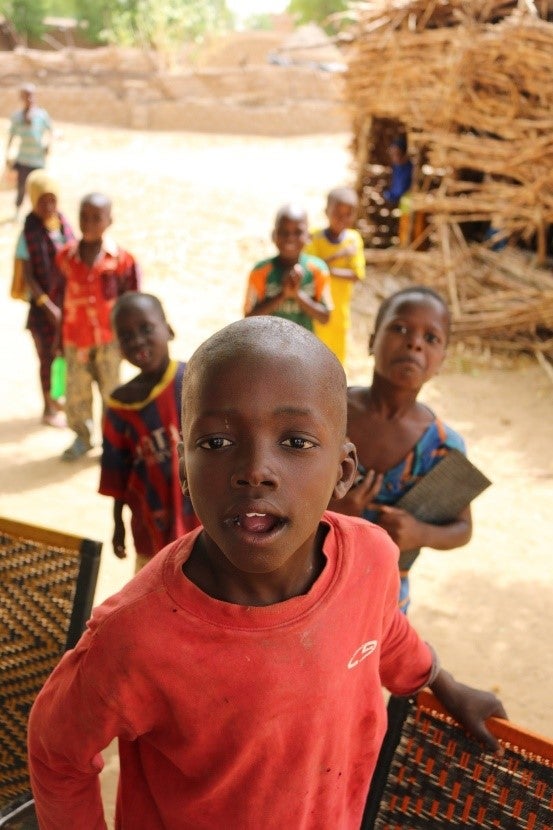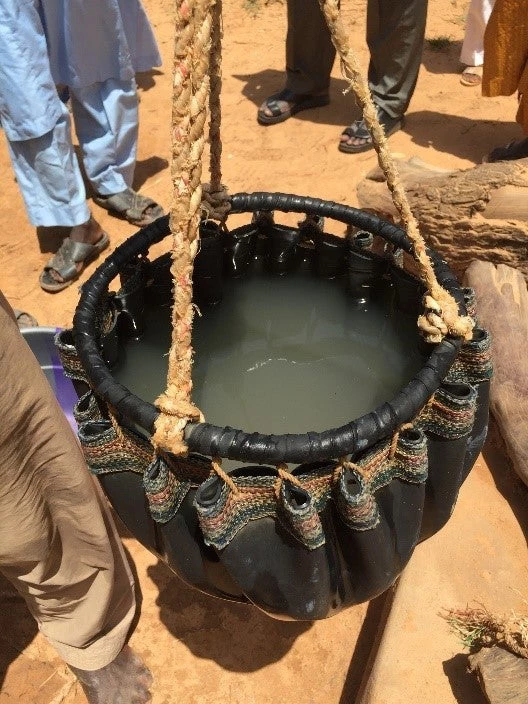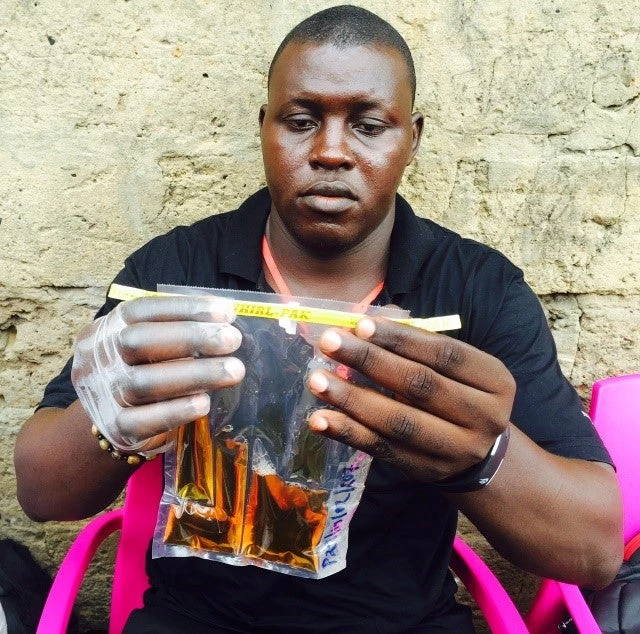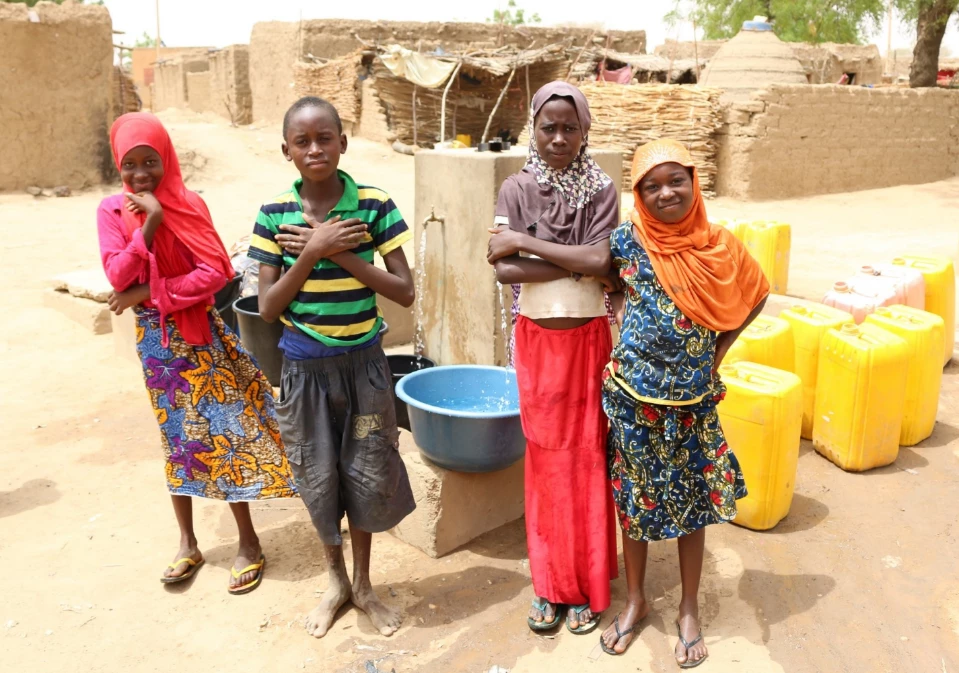
Have you ever wondered how your life chances are affected by where you were born? Odds of being born at all are already miraculously small, but only one in ten of us is born into the relative security of a high-income country. What if you are born in Niger or in the Democratic Republic of the Congo (DRC)? Before you could even walk or talk, your challenges would be daunting. That's because, despite progress, deaths of children under five years old are more than twenty times higher than in the EU and nearly ten times higher than in China.
Even if you survived, you would confront another major risk to your development: malnutrition. In Niger and DRC, almost one out of every two children is stunted. Stunting has significant and long-lasting negative effects on early childhood development, impeding physiological and mental development, and making small children more vulnerable to disease. Starting off in life stunted is akin to starting a marathon with a broken ankle.

High levels of malnutrition threaten the very foundation of development and undermine other efforts to reduce poverty by directly weakening the next generation's strength and capacity. Addressing child malnutrition and its drivers can thus be a natural focus to rally around in frontier countries such as the DRC and Niger which face a multitude of development challenges. These can include low life expectancy, low literacy, and reduced productivity. All are connected and all are aggravated by malnutrition.
Water and sanitation are key among the drivers of malnutrition in both countries. Recent analyses undertaken as part of the WASH Poverty Diagnostic Initiative in Niger and the DRC highlight the shocking extent of fecal contamination of drinking water and the critical role of such low water quality in contributing to malnutrition outcomes.
In the DRC, more than two thirds of water samples, even from technically improved sources, were contaminated with fecal matter at point-of-use. "Improved water" refers to sources of drinking water that are constructed in a way that should prevent contamination, for example, covered wells with hand pumps or piped water networks. For many years, "improved water"has been the primary aim of interventions and the main way of monitoring whether populations have access to safe drinking water. However, as the DRC WASH Poverty Diagnostic shows, many improved sources become contaminated anyway, or users pollute the water while carrying it or storing it at home.
In some rural areas and provincial cities of the DRC, pretty much all drinking water had fecal contamination including piped supply. In Niger, a country that remains primarily rural with low levels of water, sanitation, and hygiene indicators and high open defecation (over 70% nationwide and over 90% in rural areas), this dire situation is further complicated by high climate variability, such as droughts and floods, that increase the risk of contamination.

The WASH Poverty Diagnostic offers new evidence that shows that providing children under the age of five with access to clean and safely managed water reduces their risk of malnutrition. In doing so, they have more chance to reach their full potential. This underlines the importance of the new Sustainable Development Goals (SDGs) that aim for truly safe water quality, a critical step up from the technical improvement (e.g. covering wells or laying pipes) targeted by the earlier Millennium Development Goals (MDGs). "Improved" water is not enough. In fact, polluted water from improved sources is a key part of the problem in frontier countries such as Niger and the DRC.
The WASH Poverty Diagnostic estimates that in the DRC barely four million (out of its population of 80 million) people have access to safely managed water, that is, a constant supply of truly good quality water within their household premises. What most in developed countries take for granted is still a rarity in the DRC. Safely managed sanitation, as understood by the SDGs, is virtually unknown. The entire country does not have even a single safe sewerage treatment and disposal facility. In the medium term, these gigantic needs are unlikely to be met through infrastructure construction alone.
For both countries, the WASH Poverty Diagnostics highlight the importance of addressing the urgent needs of hard to reach populations through non-infrastructure solutions such as point-of-use water treatment. Point-of-use water treatment options include heating water using filters or chlorine tablets. Such interventions can help protect children by reducing malnutrition due to diarrhea, chronic gut-inflammation, and parasite infestations. The analysis also emphasizes the critical role of norms and behaviors to ensure that water treatment is done systematically, not just in the case of disease outbreak such as cholera, at the highest community compliance level, that is, covering the largest number of households possible.
Clearly, ambition is needed and thankfully the SDGs set a high bar that can serve as a guiding post to plan the long-term infrastructure needed to address deprivations and service gaps. However, in frontier countries such as Niger and DRC, these long-term ambitions need to be complemented by more immediate practical interventions to improve water quality now to protect children from polluted water and help them beat unfavorable odds.
Twenty years ago, a well-known French song 'Etre Né Quelque Part' reminded us that being born somewhere is always random. It is a helpful reminder that no one gets to choose to learn to walk, as the song says, on the streets of Manila, Paris, or Algiers. More than ever, we should recommit to making sure that those early steps can be made with confidence and in safety wherever a child is born, and providing access to clean and safe water is a particularly crucial part of that journey.
Learn more about the WASH Poverty Diagnostic Initiative: www.worldbank.org/washpdinitiative




Join the Conversation